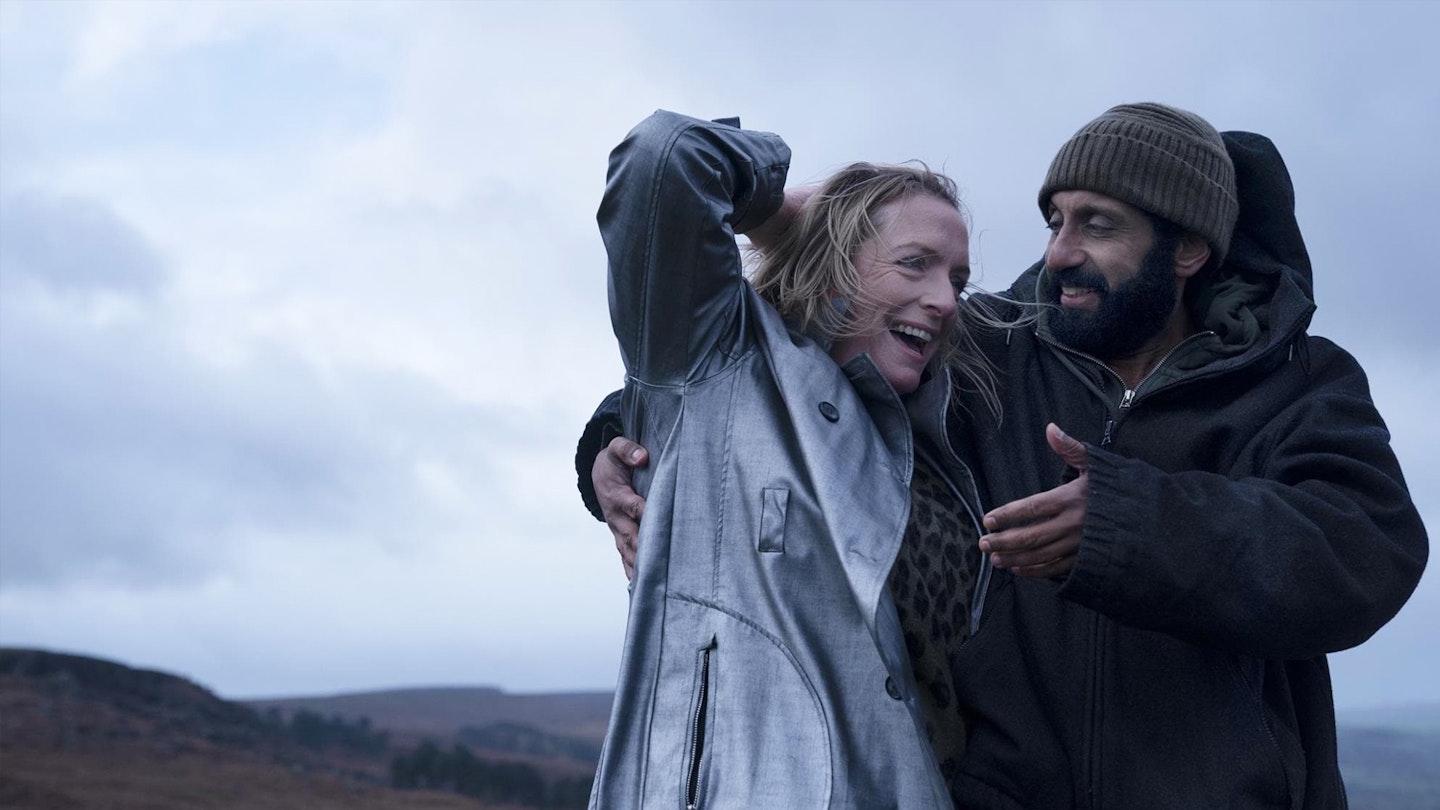Optimism is a rare thing to find in a Clio Barnard film. Her bruising debut The Arbor blended fiction and non-fiction to retell the story of a young woman’s suffering on a Bradford estate. The Selfish Giant, which follows two school friends who make a living selling scrap metal, ends in tragedy. The visual imprints of both films can be found on Ali & Ava — a rag-and-bone cart trots across one frame, the guts of a gargantuan factory billowing out into the sky fill another — but it is also underscored with a tentative and almost unnerving sense of joy. As if the rug could be pulled out from under Ali, Ava and their burgeoning love at any moment.

Claire Rushbrook is Ava, a single grandmother five times over, who emanates a seemingly endless supply of tenderness and patience despite the lingering damage caused by a wretched, alcoholic ex-husband who passed away a year prior. Her life is her family, her work as a teaching assistant and the folk music that she plays through her headphones on the bus. In a nicer part of Bradford, Ali (Adeel Akhtar) shares a home with his wife Runa (Ellora Torchia), yet is still lonely. At its heart, their marriage has ended, but they carry on for the sake of Ali’s tight-knit British-Pakistani family.
The magic comes from Rushbrook and Akhtar, whose chemistry feels effortless, believable and utterly captivating.
Both lead characters are thoroughly decent, and Barnard, who always presents communities that feel robust and lived-in, takes the time to show the pair’s individual lives within their separate circles before an act of casual and spontaneous kindness brings them together. The film has all the trappings and framework of a social-realist drama, and like Barnard’s former films, Ali & Ava does occasionally stray too far into bleakness seemingly for bleakness’ sake, with surrounding characters wrestling with a multitude of issues that lend little to the story. At times the narrative also chews on inevitable themes of racism and abuse and their ruinous effects on Ali and Ava’s relationship, though they are rarely actively shown on screen.
Yet baked into its kitchen-sink drama is a musical, compiled of shared songs and emotionally rewarding set-pieces — a two-person dance party where the pair listen to the same songs on separate phones is especially enchanting to behold — that brings a whole other language to Ali and Ava’s relationship. Their willingness to expand their cultural horizons as their bond deepens creates a singular, custom soundscape that belongs only to them. It’s here that the film delivers startling, exuberant beauty, and, weighted by two grounded and intuitive performances, it never feels disconnected from the surrounding tissue of the film.
The result is a charming, assured, contemporary British romance that has its feet rooted in reality but still has the power to transcend genre tropes and summon hope. It’s a welcome shift in tone for Barnard, but its magic comes from Rushbrook and Akhtar, whose chemistry feels effortless, believable and utterly captivating.
